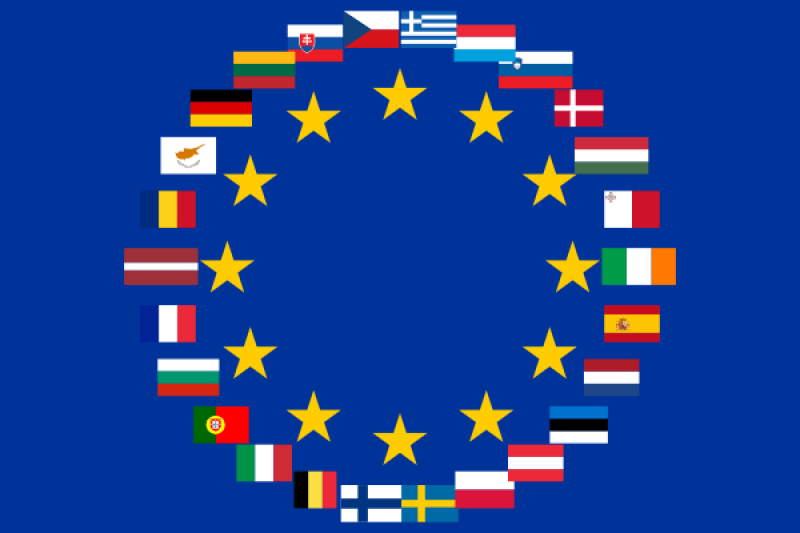Gene editing legislation on horizon may signal new dawn for EU’s sustainability and food security potential
Gene editing legislation on horizon may signal new dawn for EU’s sustainability and food security potential


On July 5, 2023, the European Commission presented a bill aimed at the partial deregulation of plant varieties resulting from “new genetic techniques” or NGT, a set of methods allowing genomes to be modified with great precision, including CRISPR Cas9/technology.
Genetically Modified Plants (GMOs) have been cultivated for more than 25 years in many countries around the world, particularly in the United States, Canada, Australia, India and China. It is therefore possible to make a quantified assessment of their use and to estimate the cost for the European Union of not having used these varieties. This is what Robert Paarlberg and Stuart Smyth, affiliated respectively with the Department of Political Science at Harvard University and the Department of Agricultural Economics at the University of Saskatchewan, attempted to do in a synthesis of the scientific literature, published in March 2023 in the journal “Trends in Biotechnology”.
In the countries that adopted them, the cultivation of GMOs made it possible to increase the yield of soybeans and corn by 330 million tons and 595 million tons, respectively, for the period 1996-2020, leading to a benefit for farmers of 261 billion dollars.
…
New genetic technologies, the subject of the bill, offer significant prospects for plant improvement… Properly supervised, the integration of these new varieties into agroecosystems could contribute to reducing GHG emissions and the use of phytosanitary products.
[Editor’s note: This article has been translated from French and edited for clarity.]
This is an excerpt. Read the original post here

 | Videos | More... |

Video: Nuclear energy will destroy us? Global warming is an existential threat? Chemicals are massacring bees? Donate to the Green Industrial Complex!
 | Bees & Pollinators | More... |

GLP podcast: Science journalism is a mess. Here’s how to fix it

Mosquito massacre: Can we safely tackle malaria with a CRISPR gene drive?

Are we facing an ‘Insect Apocalypse’ caused by ‘intensive, industrial’ farming and agricultural chemicals? The media say yes; Science says ‘no’
 | Infographics | More... |

Infographic: Global regulatory and health research agencies on whether glyphosate causes cancer
 | GMO FAQs | More... |

Why is there controversy over GMO foods but not GMO drugs?

How are GMOs labeled around the world?

How does genetic engineering differ from conventional breeding?
 | GLP Profiles | More... |

Alex Jones: Right-wing conspiracy theorist stokes fear of GMOs, pesticides to sell ‘health supplements’




 Viewpoint — Fact checking MAHA mythmakers: How wellness influencers and RFK, Jr. undermine American science and health
Viewpoint — Fact checking MAHA mythmakers: How wellness influencers and RFK, Jr. undermine American science and health Viewpoint: Video — Big Solar is gobbling up productive agricultural land and hurting farmers yet providing little energy or sustainabilty gains
Viewpoint: Video — Big Solar is gobbling up productive agricultural land and hurting farmers yet providing little energy or sustainabilty gains Fighting deforestation with CO2: Biotechnology breakthrough creates sustainable palm oil alternative for cosmetics
Fighting deforestation with CO2: Biotechnology breakthrough creates sustainable palm oil alternative for cosmetics Trust issues: What happens when therapists use ChatGPT?
Trust issues: What happens when therapists use ChatGPT? 30-year-old tomato line shows genetic resistance to devastating virus
30-year-old tomato line shows genetic resistance to devastating virus California, Washington, Oregon forge immunization alliance to safeguard vaccine access against federal undermining
California, Washington, Oregon forge immunization alliance to safeguard vaccine access against federal undermining The free-range chicken dilemma: Better for birds, but with substantial costs
The free-range chicken dilemma: Better for birds, but with substantial costs ‘You have to treat the brain first’: Rethinking chronic pain with Sanjay Gupta
‘You have to treat the brain first’: Rethinking chronic pain with Sanjay Gupta
